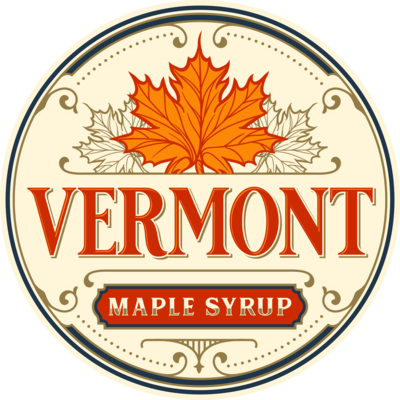Not all maple syrups are created equal. In fact, most “maple syrup” labeled products are not even what they claim to be. Most grocery stores will, for example, carry cheap imitation products that doesn't even contain maple syrup. Buyers should take caution when searching for pure and quality maple syrup. That’s why we recommend that, ideally, consumers should purchase organic options. But does maple syrup need to be organic?

Organic maple syrup is the best when it comes to quality and taste because consumers assure themselves of quality and pure produce. But the question remains if maple syrup only has one ingredient, why isn't all maple syrup organic?
What is organic maple syrup?
One of the main differences between organic maple syrup and non-organic syrup is the production requirements. In Vermont, producers are required to abstain from the use of harmful synthetic additives in the production process. These organic practices are considered standard and include:
- Prohibiting pesticides
- Prohibiting tree tagging and marking
- Prohibiting herbicides
- Prohibiting synthetic defoamers used in the boiling and evaporation process
The Northeast Organic Farming Association of Vermont, or NOFA, for short, which works with and creates organic USDA regulations in the state, also requires that “products represented as “organic” must contain at least 95% organic ingredients. The remaining 5% must also be organic unless those ingredients are not commercially available. This 5% may also include non-agricultural substances (such as food grade diatomaceous earth)” (1).
Thus, one of the primary benefits of buying organic maple syrup is that it guarantees buyers a healthy product free from synthetic ingredients and pesticides. Limiting often toxic tree paint also prevents possible leakage into sap lines and boilers. Likewise, prohibiting pesticides and herbicides minimize the risk of syrup contamination. After all, the last thing you’d want to put on your pancakes is chemicals.
But as it turns out, limiting pesticides and following standard production practices are not all that goes into producing organic maple syrup. Producers should meet sustainable land management standards for certification.
Sustainable production is important
NOFA requires that for certification, all Vermont maple syrup producers must factor long-term sustainability into their production. These organic requirements are lengthy and consist of categories that include:
- Tree species diversity
- Conservation
- Tree stand growth and regeneration
- Thinning and harvesting techniques
- Residual stand damage
- Forest soil and road conservation
- Tapping depth
- Syrup storage
- Facility sanitation
These guidelines protect Vermont sugar stands and guarantee long-term environmental sustainability for organic maple syrup growers. Long term sustainability is an important goal that must be met for organic certification. For quick summary of all of these requirements, read our previous blog, in which we discuss if all maple syrup is organic.
So should you buy organic?
Non-organic optionsn do exist and may be a tempting chose depending on where you live. However, we recommend that when searching for the best bottle, consumers chose an organic option. Consumers who buy organic products can guarantee themselves a product that is not only healthy and free from pesticides, but also environmentally sustainable.
Vermont Maple Syrup makes the best organic Vermont maple syrup, maple sugar, and maple candy you will taste. In classy, nostalgic packaging that puts Vermont first. Organic, pure small-batch maple syrup and maple sugar — tapped, collected, and made available from our 1,200-acre farm in the small town of Guilford, Vermont, USA.










